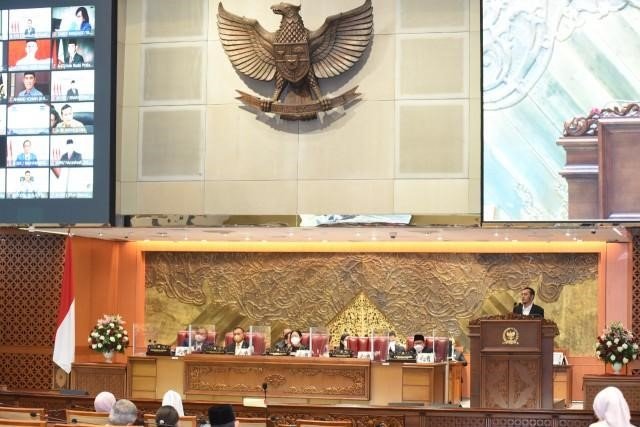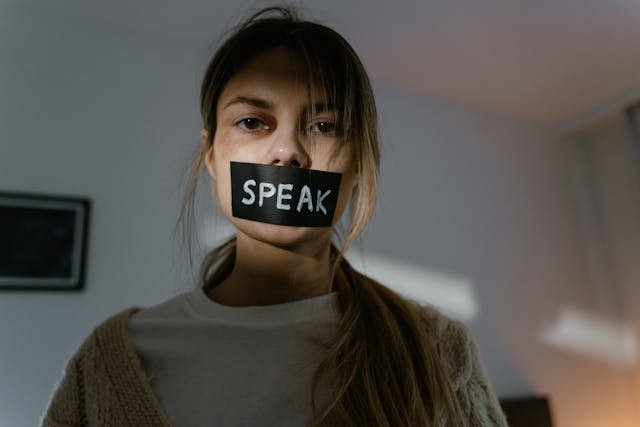In recent years, the Indonesian public has become increasingly aware of the insidious phenomenon commonly referred to as “revenge porn”—the dissemination of intimate images or videos without the consent of those depicted. With rapidly expanding internet access and the widespread use of social media, countless individuals, predominantly women, have found themselves victimized in ways that far surpass simple invasions of privacy. These digital violations cause profound psychological, social, and economic harm, as victims grapple with stigma, harassment, and the lingering trauma of having their most private moments unwillingly shared.
Until recently, Indonesia’s legal frameworks struggled to adequately address this form of abuse. Existing legislation, including the Information and Electronic Transactions Law (UU ITE) and the Pornography Law, offered patchwork remedies that were neither fully aligned with the complex realities of revenge porn nor equipped with robust enforcement mechanisms to deter perpetrators. Victims often found themselves ensnared in bureaucratic red tape, faced with reluctant law enforcement officials, and burdened by the daunting task of proving digital violations that transcended traditional categories of physical harm. Such shortcomings not only discouraged victims from seeking justice but, in many cases, allowed perpetrators to operate with impunity.

A Turning Point in Legal Recognition
The enactment of the Law on Sexual Violence Crimes (UU No. 12 of 2022), known as the TPKS Law, marked a pivotal moment in Indonesia’s legislative landscape. For the first time, revenge porn was recognized under a broader umbrella of sexual violence, affirming that harm inflicted through digital means is no less severe than offenses occurring in the physical world. As someone representing the Bullyid App—a platform and organization dedicated to supporting victims of online harassment and one of the groups that tirelessly advocated for the TPKS Law’s passage—this development brought immense relief and a sense of vindication. We and other civil society actors worked diligently to ensure that policymakers understood the gravity of these digital abuses and the urgent need for a legal framework that would prioritize victims’ rights.

This shift in approach is not merely symbolic. The TPKS Law moves beyond labeling revenge porn as a violation of morality or a breach of electronic information regulations. Instead, it explicitly frames such acts as sexual violence, acknowledging that the core harm lies not only in the content’s sexual nature but in the power dynamic that allows perpetrators to terrorize, blackmail, or shame their victims. This reframing encourages the legal system, law enforcement, and the public at large to treat online sexual exploitation as seriously as any other form of abuse.
Victim-Centered Provisions and Enforcement Challenges
One of the most significant innovations of the TPKS Law lies in its efforts to empower victims. Provisions include the possibility of financial restitution, legal support, and psychosocial services, enabling survivors to seek justice without fearing re-victimization by the system. Furthermore, the law envisions a more coherent enforcement structure that demands the active involvement of investigators, prosecutors, and judges who are educated on sexual violence issues and sensitive to the plight of victims.
Despite these advances, persistent challenges remain. Law enforcement officials must develop specialized knowledge to investigate digital crimes effectively, gather electronic evidence, and comprehend the underlying psychological harm. Without sufficient training and resources, investigators may struggle to navigate the technical intricacies of online abuses—such as tracking the spread of intimate images across multiple platforms or identifying anonymous perpetrators. Judges and prosecutors, similarly, must be prepared to analyze complex digital trails, interpret the law’s language in context, and appreciate the full scope of harm inflicted upon victims. Without a serious commitment to capacity-building, these legal reforms risk remaining theoretical rather than transformative.
Cultural Obstacles and Social Stigma
Beyond the legal arena, cultural shifts are necessary to ensure that the TPKS Law’s promise does not fall flat. Indonesian society, like many others, often attaches stigma and shame to victims of sexual violence. In cases of revenge porn, blame is too frequently directed at victims rather than perpetrators, and discussions of consent can be overshadowed by moralistic judgments. This cultural baggage can discourage victims from reporting crimes to authorities, limit their access to justice, and perpetuate harmful stereotypes.
To counteract these deep-seated biases, a multi-pronged strategy is essential. Public education campaigns, media ethics training for journalists, and community-level dialogues are critical to shaping more empathetic and informed social attitudes. Additionally, civil society organizations and legal aid groups must be empowered to raise awareness of the TPKS Law’s protections, guide victims through the legal process, and hold the authorities accountable when enforcement falters. Only by dismantling the stigma and centering victims’ voices can society create an environment in which survivors feel safe to seek recourse and reclaim their agency

The Digital Frontier of Women’s Rights
The classification of revenge porn as a form of sexual violence under the TPKS Law is not only a matter of legal precision; it is a statement about the nature of violence in the digital age. As technology evolves, abusers exploit new tools to exert control, humiliate targets, and undermine victims’ well-being. Equipping the legal system with nuanced, survivor-focused regulations ensures that these evolving forms of exploitation do not outpace the capacity of the law to respond.
At its core, the TPKS Law reflects a broader struggle: to ensure that fundamental human rights are respected, whether infringed upon in person or online. These legal updates signal that the Indonesian state acknowledges the severity of digital sexual violence and is willing to intervene robustly to protect citizens. Yet, the success of this initiative rests on continuous evaluation. Policymakers, advocates, and researchers must monitor implementation closely, gathering data on case outcomes, victim experiences, and enforcement patterns to refine the system over time.
Toward a Future of Digital Justice
As the TPKS Law takes root, it beckons Indonesia—and other countries observing its reforms—to consider how legislation can adapt to a digital environment that blurs the lines between public and private, harm and harassment, image and identity. The law highlights how effectively fighting sexual violence online demands both legal innovation and cultural engagement. Where past frameworks floundered, the TPKS Law offers a more focused, victim-centered roadmap, signaling that society need not remain complicit in the cycles of fear, humiliation, and disempowerment that revenge porn inflicts.

There is no quick fix for such a pervasive problem. But the TPKS Law’s recognition of revenge porn as a form of sexual violence represents a critical step toward safeguarding human dignity in the digital world. For those of us who championed this legislation, including Bullyid App, its enactment is a testament to the power of persistent advocacy and a sign that a more just and compassionate future may indeed be possible. Ultimately, justice will depend on the willingness of institutions, communities, and individuals to uphold the law’s intent—ensuring that survivors find not only legal remedies, but also the solidarity and understanding they deserve.
Written by: Agita Pasaribu




